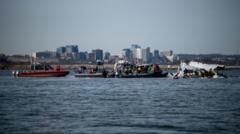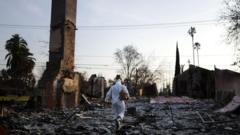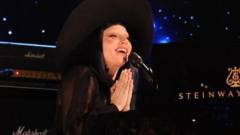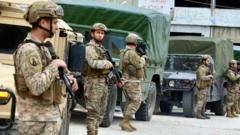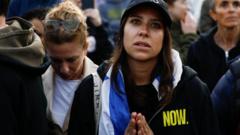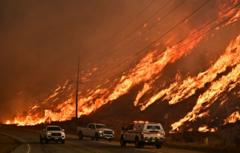In a significant move, over 11,000 baristas across the United States will commence a five-day strike beginning Friday morning. Workers United, the union representing these employees, announced that the demonstrations will take place in major cities including Los Angeles, Chicago, and Seattle. The plan entails escalating walkouts that could extend to hundreds of stores by Christmas Eve if negotiations fail to yield a satisfactory agreement with Starbucks.
Starbucks Baristas Launch Five-Day Strike Over Pay and Working Conditions
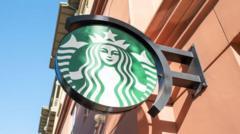
Starbucks Baristas Launch Five-Day Strike Over Pay and Working Conditions
More than 11,000 Starbucks employees in the US are set to strike as they demand better wages and working environments.
The union's demands focus on raising wages, improving staffing levels, and establishing better work schedules. “We are prepared to negotiate further to reach a resolution. We need the union to come back to discussions,” stated a spokesperson for Starbucks. In response, the company emphasized its commitment to offering competitive pay, with an average hourly wage of over $18, which it claims translates to roughly $30 per hour when factoring in benefits for part-time workers.
Union members, however, argue that the disparities in compensation between baristas and senior executives, such as CEO Brian Niccol, signal an urgent need for change. Niccol’s reported annual base salary of $1.6 million, alongside substantial potential bonuses and stock options, has drawn criticism as workers call for fair pay relative to the high earnings of company leaders.
Fatemeh Alhadjaboodi, a Texas-based Starbucks barista, expressed frustrations over the situation, stating the strike was a last resort due to broken promises from the company. Starbucks, which has faced declining sales amid increasing prices and public boycotts linked to global events, continues to defend its pay structure as aligned with overall company performance and success.
As festive season earnings loom, the stakes are high for both the union and Starbucks, with potential ripples affecting thousands of baristas and the customers who frequent their stores. The upcoming days could prove crucial in navigating the future of labor relations within the coffee giant.
Union members, however, argue that the disparities in compensation between baristas and senior executives, such as CEO Brian Niccol, signal an urgent need for change. Niccol’s reported annual base salary of $1.6 million, alongside substantial potential bonuses and stock options, has drawn criticism as workers call for fair pay relative to the high earnings of company leaders.
Fatemeh Alhadjaboodi, a Texas-based Starbucks barista, expressed frustrations over the situation, stating the strike was a last resort due to broken promises from the company. Starbucks, which has faced declining sales amid increasing prices and public boycotts linked to global events, continues to defend its pay structure as aligned with overall company performance and success.
As festive season earnings loom, the stakes are high for both the union and Starbucks, with potential ripples affecting thousands of baristas and the customers who frequent their stores. The upcoming days could prove crucial in navigating the future of labor relations within the coffee giant.

